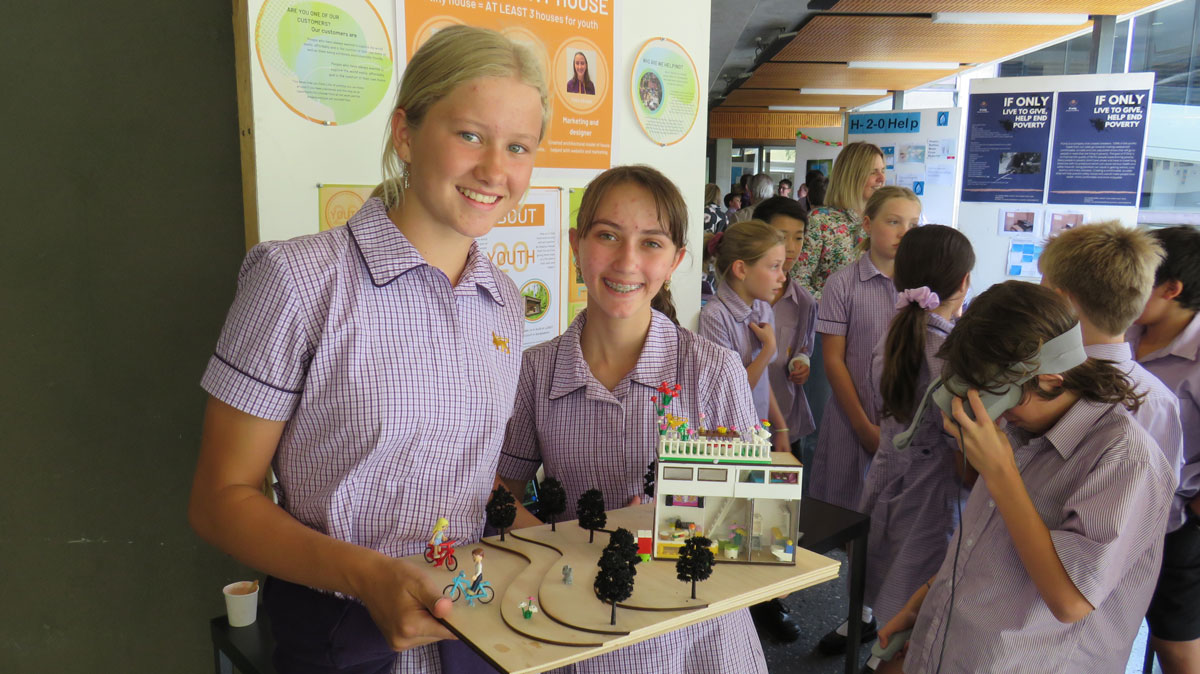
The next generation of social entrepreneurs are busy honing their skills at Wesley College thanks to the school’s Social Enterprise unit, which sees Year Eight students work together to create innovative solutions to real problems.
'It’s very much exploring the interrelationship between design thinking and entrepreneurship,' says Gayathri Wijesekera, Head of Wesley College’s Design and Technology Faculty, St Kilda Road Campus.
'We get our students thinking about: if these are the problems that exist – whether its local or global – then how can we create more sustainable, ethical business models to solve these problems?'
By emphasising real problems, students 'find their passion point,' Wijesekera explains. 'That becomes a way of then engaging students. It’s very much student-led.'
After identifying a problem, students set about researching a solution through interviews, surveys, product testing and user trials. The school uses online innovation platform Strategyzer to teach business development skills and students develop their own business model, defining what success looks like and creating a launch and marketing campaign. They then use tools such as 3D printers, computer aided design software and laser cut machines to develop their products.
It all leads up to an end of year Design and Entrepreneurship Day, where students exhibit and pitch their ideas and hear from guest speakers discussing their own entrepreneurial journeys. This year, students will hear from Josh Howard, CEO of local eco-soap company Single Use Aint Sexy, and past student of the College. The highlight of the whole experience is observing the passion with which students speak about the development of their social enterprise when exhibiting.
'Learning is changing, and we have the ability to provide students with more enriching learning opportunities,' Wijesekera says. 'We can take what’s happening in the broader environment and give our students the opportunity to experience that.'
In recent years, students have developed solutions for problems ranging from the environmental impact of fast fashion to improving mental health through spatial design. One group designed shelters for vulnerable communities in Bangladesh.
'The students identified that there are certain high-density living areas that are prone to natural disasters. So, they looked at how they could create modular shelter designs allowing for a quick, functional setup within a cost-effective environment.'
Because Wesley College uses the framework of the International Baccalaureate Middle Years Program (MYP), the school can deliver innovative programs such as the social enterprise unit in line with the academic curriculum, which emphasises experiential learning.
'I love the MYP curriculum because it’s an enquiry-based model. The key is capturing student curiosity. And for a subject such as Design and Technology, it’s such a relevant field. Every day we all interact with it, consciously or not. It’s very much embedded in real-world problems.'
By participating in the class, students develop skills in design thinking, entrepreneurialism, communication and collaboration, all of which are vital skills for navigating the changing world of the 21st century.
'There is an opportunity for Australia to play a huge role in contributing to innovation globally. If you can build student awareness – and confidence – in being able to identify that opportunity and pursue it, then it gives them a point of advantage.
This article appeared in The Age on Saturday 11 September 2021.
